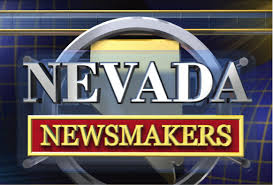State, local governments, strapped for cash, need U.S. Senate to pass relief package, Cancela says
By Ray Hagar, Nevada Newsmakers
Nevada’s state government plus local and county governments have already seen tax revenues fall drastically because of the economic shutdown of the COVID-19 crisis.
Yet if the U.S. Senate fails to pass the $3 trillion “HEROES Act” relief package, job losses and programs cuts for state and local governments could become much worse, state Sen. Yvanna Cancela, D-Las Vegas, said on Nevada Newsmakers.
“It is unfortunate that cuts are going to be a real part of how we balance the budget over the next year,” Cancela told host Sam Shad. “And if Congress, the Senate in particular, fails to take action (on the HEROES Act) to ensure that municipalities and states can make up their budget shortfalls, it would put a lot of people into really tough situations.”
The HEROES Act, coming on the heels of the $2 trillion federal CARES Act, includes $1 trillion to help shore up sagging budgets for state and local governments. It has already been approved by the Democratically-controlled U.S. House of Representatives.
However, the GOP-controlled U.S. Senate has balked with many of the bill’s provisions. Some Republicans have referred to the bill as “a liberal wish list.”
Cancela, however, sees the HEROES Act as necessity for struggling local and state governments. Those governments in Nevada saw tax revenues for education, public health, law enforcement and other services virtually dry up overnight when Gov. Steve Sisolak closed all nonessential businesses in Nevada, including casinos, nightclubs and hotels, in mid-March.

Plus, money from the CARES Act cannot be used to fill holes in state and local government budgets, she said.
“So we can’t apply a couple of million in CARES Act dollars to make up for room-tax revenue losses,” Cancela said. “So unless the Senate takes up this really important bill that has come out of Congress that says, ‘Here is money for states and municipalities to fill their budget holes,’ then we as lawmakers are going to have to make tough decisions about where those cuts are. And I am certainly not looking forward to that and I hope the Senate takes quick action to pass the bill.”
The U.S. Senate is not expected to take up the bill until the end of this month or early June, according to published reports. If passed by the U.S. Senate, the bill would then need approval from President Trump.
“Based on the way our budget discussions are moving, there will be severe cuts in the public sector,” Cancela said. “I hope we can avoid that. But to me, (there’s) no question that the economic impacts of this are going to affect employees and employers in the private and public sectors alike.”
Cancela also sees the potential for major cuts to the state’s system of higher education. It is difficult to tell now just how deep cuts to higher education will be and Cancela said she hopes to keep the cuts “mildly painful instead of seriously damaging.”
She added, “I like to think that we will avert serious damage.”
Cancela also sits on the Legislature’s Interim Finance Committee and that group recently moved more than $400 million from the state’s ‘rainy day fund’ to help shore up the state budget for the current fiscal year. Some lawmakers have speculated, however, the state may face another $1 billion shortfall in the next fiscal year.
The IFC vote to drain the rainy-day fund passed strictly on party lines, with no Republican voting for the measure. The GOP members of the IFC were concerned that there was no visible plan as how the added money would be spent.
“I thought there was a valid discussion in the meeting about the need for oversight and transparency,” Cancela said. “I also thought there were really good points about the need to move quickly and expeditiously as possible.
“And while it may have been a party-line vote, there was a lot of agreement that ultimately we needed these dollars and that inevitably we, were going to draw down the entirety of these dollars,” Cancela said. “I thought the Speaker (Jason Frierson) made what was probably the best metaphor for understanding what we were doing, which is simply moving the $400 million from our savings to our checking account to make sure we can cover our bills.”
Cancela said she has heard other members of the Legislature call for at least one special session to address the budget shortfalls of the COVID-19 crisis. State Sen. Ben Kieckhefer, R-Reno, said on Nevada Newsmakers earlier this month that a special session should be held in June, before the beginning of the next fiscal year. Cancela said she has no knowledge when it may be called.
Under Nevada law, the governor calls for a special session of the Legislature. The governor also sets the agenda for any special session.




